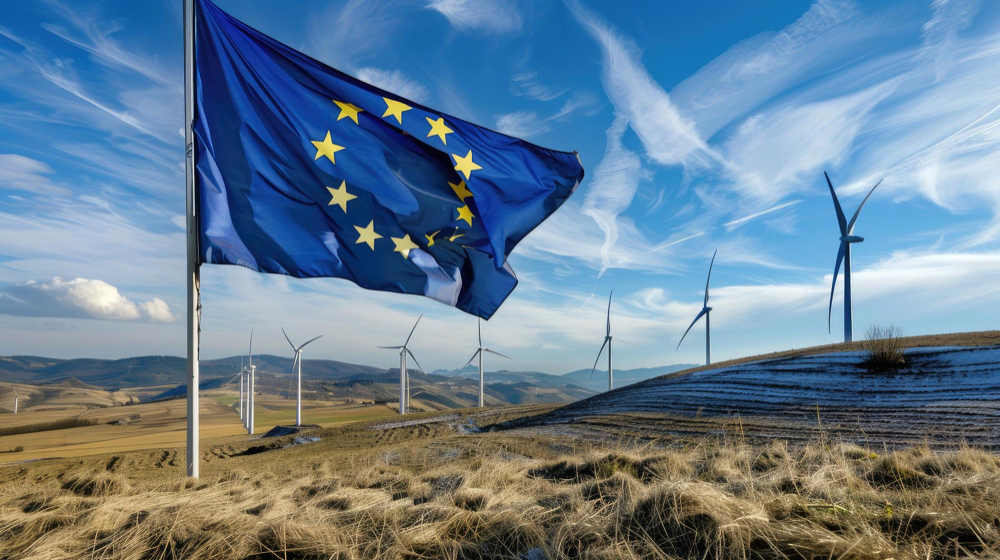EU to support continued global climate action and push for ambitious finance and investment goals at COP29

At the COP29 UN Climate Change Conference on 11-22 November in Azerbaijan, the European Union will work with international partners to deliver on the goals of the Paris Agreement of limiting global average temperature rise to as close as possible to 1.5C. Climate change continues to be an issue which knows no borders, and increasingly harms lives and livelihoods across Europe and around the world. At COP29, the Parties to the Paris Agreement must ensure that global financial flows are increasingly aligned with the Paris Agreement, unlocking investments, through the adoption of a New Collective Quantified Goal (NCQG) on Climate Finance. The NCQG will be the main priority of this year’s negotiations.
The EU is currently the largest provider of international climate finance, contributing €28.6 billion in public climate finance in 2023 and mobilising an additional amount of €7.2 billion of private finance to support developing countries to reduce their greenhouse gas emissions and adapt to the impacts of climate change. While developed countries should continue to lead efforts in mobilising climate finance, achieving ambition requires a broader group of contributors, as well as the mobilisation of finance from the private sector, new and innovative sources, and working on enabling conditions at global and domestic level. The NCQG should contribute to making financial flows consistent with the Paris Agreement and change the nature of the multilateral discourse on climate finance. It should acknowledge the need for a global effort to mobilise finance at scale from a wide variety of sources, public and private, domestic and international.
Another important element of this year’s talks will be to reconfirm the global energy goals agreed last year in Dubai to transition away from fossil fuels, triple renewable energy investments, and double energy efficiency measures by 2030. EU negotiators will work to set ambitious expectations for the Nationally Determined Contributions (NDCs) to be submitted by all Parties next year. The EU has begun preparations for its new NDC with the publication of the Commission’s Communication on Europe’s 2040 climate target earlier this year. The Commission intends to present a legislative proposal to enshrine a 90% emission reduction target for 2040 in the European Climate Law. This target will subsequently inform the submission of the new EU NDC.
The EU negotiating team will also be working to conclude the negotiations on international carbon markets under Article 6 of the Paris Agreement. With growing global appetite for a rigorous system of carbon offsets, and for funding for mitigation and adaptation projects, we need to put in place common standards. These should be based on high integrity, additionality, durability, and accountability.
Commissioner for Climate Action Wopke Hoekstra will again lead the EU negotiating team at COP29, working closely with the Council Presidency and Member States to deliver on the negotiating mandate adopted last month. Commissioner for Energy Kadri Simson will attend on 14-15 November, focusing on the implementation of the commitment to transition away from fossil fuels, our work to reduce methane emissions, and the development of clean technologies. Commissioner for Innovation, Research, Culture, Education and Youth Iliana Ivanova will also be in Baku on 12 November to attend a high-level event on ‘The Future of Net Zero Competitiveness’.
Background
Under the 2015 Paris Agreement, 194 countries agreed to keep average global temperature change well below 2°C and as close as possible to 1.5°C by the end of the century. To do this, they agreed to submit Nationally Determined Contributions (NDCs) which represent their individual emissions reduction targets. The European Union is firmly committed to the Paris Agreement, and is a global leader in climate action, having already cut its greenhouse gas emissions by 37% since 1990, while growing its economy by almost 70%.
With the European Green Deal presented in December 2019, the EU committed to reaching climate neutrality by 2050. This objective became legally binding with the adoption and entry into force of the European Climate Law, in July 2021. The Climate Law also sets an intermediate target of reducing net greenhouse gas emissions by at least 55% by 2030, compared to 1990 levels. This 2030 target was communicated to the UNFCCC in December 2020 as the EU’s NDC under the Paris Agreement. In 2021, the EU presented a package of legislative proposals to make its climate, energy, land use, transport and taxation policies fit for reducing net greenhouse gas emissions by at least 55% by 2030.
The EU will not run a side events programme in its own pavilion at this year’s COP, but will be participating in a wide range of events on site. The Commission is also partnering with the ILO for the third year to co-host the Just Transition Pavilion, a forum for discussion and exchange on the employment and social aspects of the transition, including quality green jobs, skills, and social dialogue.
